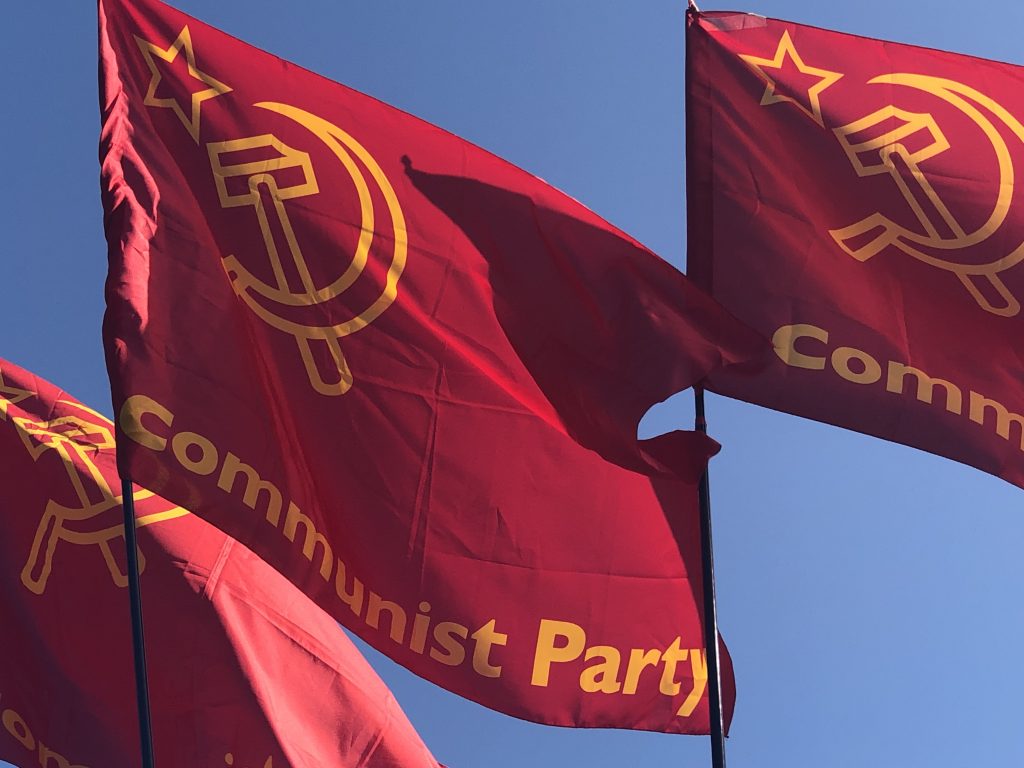“The Communists are distinguished from other working class parties by this only: (1) In the national struggles of the proletarians of the different countries, they point out and bring to the front the common interests of the entire proletariat, independently of all nationality. (2) In the various stages of development which the struggle of the working class against the bourgeoisie has to pass through, they always and everywhere represent the interests of the movement as a whole.
“The Communists, therefore, are on the one hand, practically, the most advanced and resolute section of the working class parties of every country, that section which pushes forward all others; on the other hand, theoretically, they have over the great mass of the proletariat the advantage of clearly understanding the line of march, the conditions, and the ultimate general results of the proletarian movement” (Marx & Engels, The Manifesto of the Communist Party)
This is how Karl Marx and Fredrick Engels described the Communist Party in the mid-19th century. Now, in the 21st century, it still outlines the essential characteristics of the Communist Party. This is not because of some dogmatic or ritualistic clinging to the past or because the world hasn’t changed in the last 170 years but because those words of Marx and Engels describe the party which is necessary to end capitalism – an economic system which, whilst it has changed and developed considerably, still remains the greatest threat to humanity’s future.
The party they described was internationalist because it recognised that capitalism is, and always has been, an international system and that its defeat can only be accomplished by the workers of the world, united across their different national struggles, offering practical assistance and solidarity to each other. This is not to suggest, as some have, that a successful revolution cannot take place in a single country (indeed it is difficult to imagine how it could be otherwise), but simply that the ultimate aims and interests of the international working class are indivisible and Communists must pay constant attention to this, never putting the interests of one national section before those of the proletariat as a whole.
Such a party must be firmly rooted in the working class of its own country, representing at all times the interests of the movement as a whole. This means working in a genuinely broad way to build the strength and unity of the working class around progressive demands, not taking supposed short-cuts which bypass concrete work within the movement or isolating itself from the mass of working people in order to maintain its revolutionary purity. Only a party truly rooted in and drawing its strength from the working class can effectively mobilise that class in the struggle to overthrow capitalism. The Communist Party must be the natural home of every class-conscious worker.
However, the Communist Party must be much more than this. In order to intervene effectively in the class struggle, it must work as a disciplined force, guided by the most advanced theory. This means it must have truly democratic structures, drawing on the creativity and experience of all members when making decisions. Only by involving the membership at all levels within the Party will the most effective line be arrived at. It also means that, once this line is decided, it is the duty of every member to work for it, regardless of the position they may have taken in internal discussion. This system of organisation, known as democratic centralism, does not make the Communist Party infallible and it certainly shouldn’t rule out tactical flexibility or the ability to adjust strategic perspectives in line with changing circumstances. But, by ensuring that decisions are taken democratically and that that democracy is binding on all members, it does ensure that the Party makes a considered and decisive contribution to the movement.
Yet, on its own, this is still not enough to ensure the Communist Party fulfils its revolutionary role. Democracy must be an active, not a passive, process and therefore it is the duty of the Party collectively to raise the theoretical level within its own ranks. This means conducting a serious programme of Marxist-Leninist education throughout the Party – not simply a dry study of classic texts but a programme based on collective political discussion and the creative application of Marxism-Leninism as a living, developing theory to contemporary political problems.
Clearly, building the kind of party described by Marx and Engels is, in itself, a difficult task and yet it is not an optional extra in the struggle for socialism. Only such a party – internationalist, rooted in the working class, organised according to democratic centralism and guided by Marxism-Leninism – is capable of providing the necessary strategic leadership within the movement. Ultimately, this will prove to be of decisive importance in determining the outcome of the class struggle.



